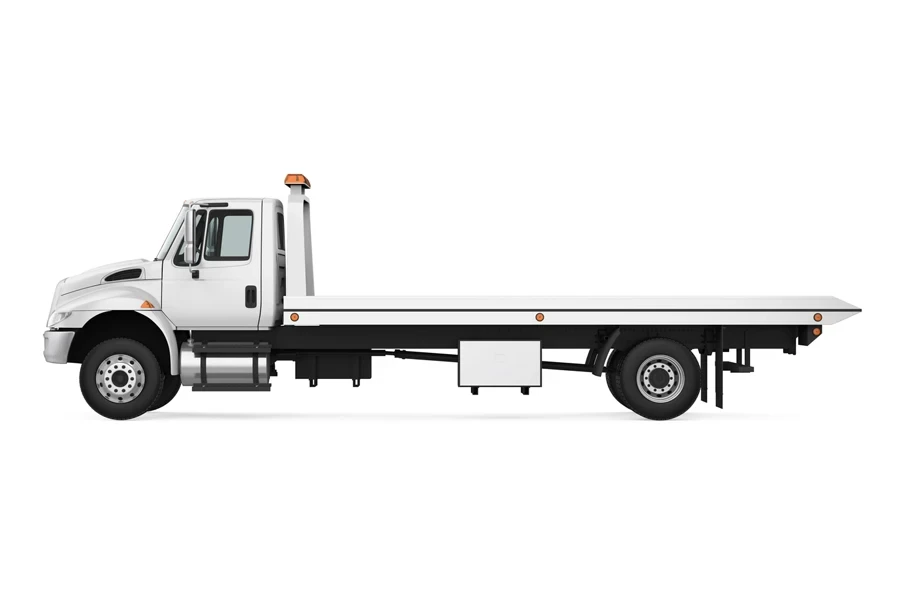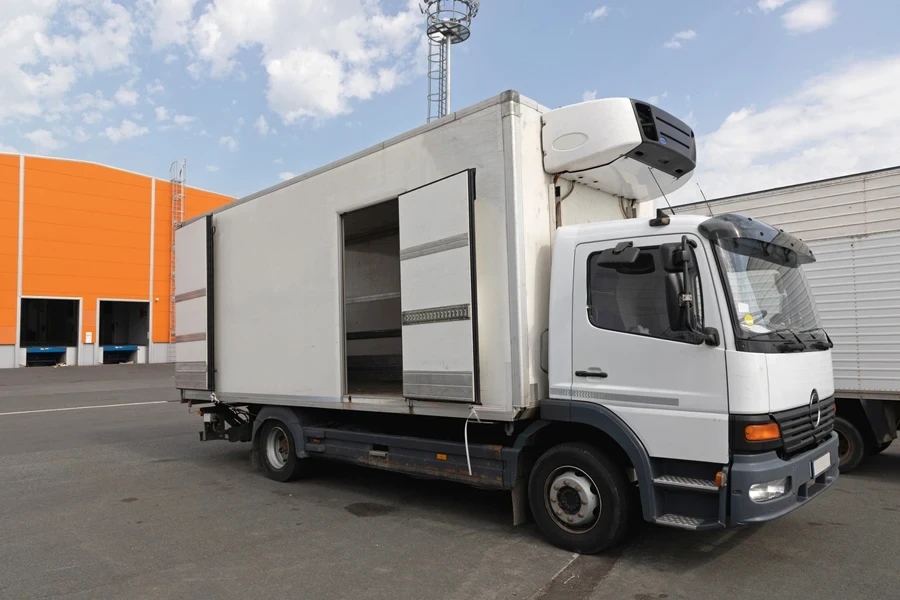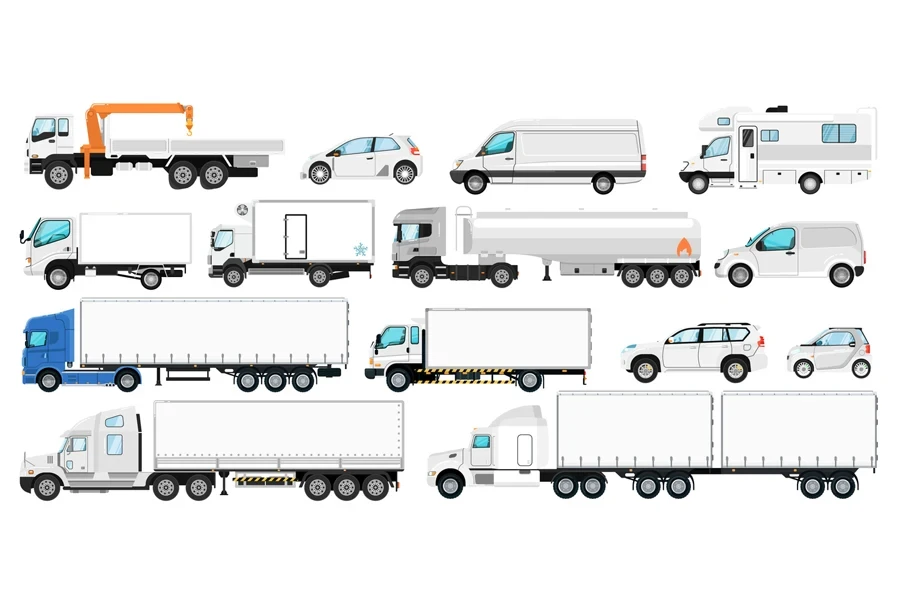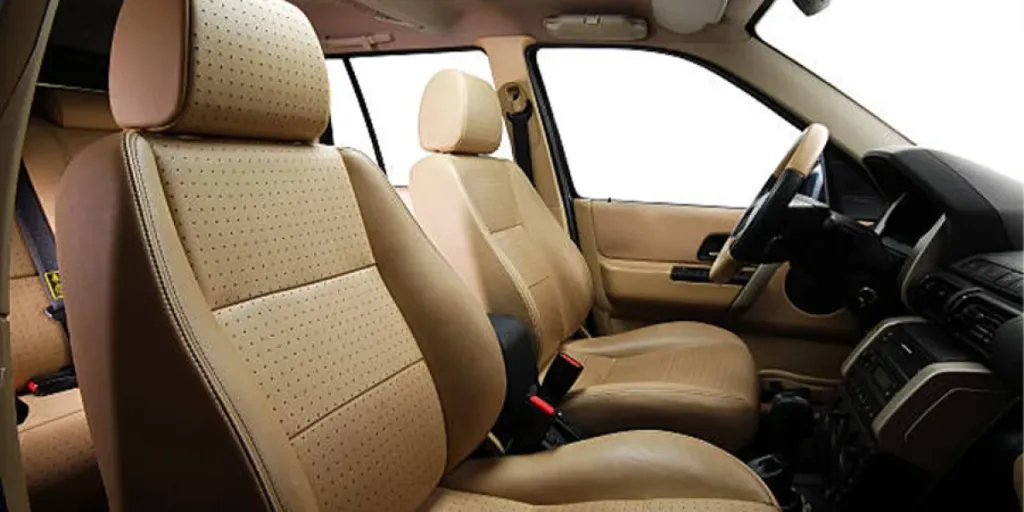Billions of tons of goods are transported by trucks to destinations across the United States every year. According to the American Trucking Association, trucks moved about 72.6% of US freight by weight in 2022. That’s more volume than cargo ferried via rail transport, which accounts for 28% of total freight movement by ton miles.
Therefore, to succeed in today’s competitive business landscape, buying the right truck is essential. This comprehensive guide discusses important considerations to factor in before choosing a cargo truck, as well as the different types of cargo trucks available in the market today. It will also look at the overview of the global cargo truck market size. Let’s get started.
Table of Contents
Overview of the cargo truck market size
Different types of cargo trucks
Key things to consider when choosing a cargo truck
Conclusion
Overview of the cargo truck market size
A cargo truck, sometimes known as a freight truck, is a vehicle used for transporting goods from one place to another. It is off-road capable and mostly utilized in the logistics industry.
The cargo truck market has been experiencing exponential growth over the past couple of years, and it’s not stopping any time soon. According to Brainy Insights, the freight trucking market was worth USD 2,586.73 billion in 2022, and analysts expect it to grow to USD 5530.97 billion by 2032 at a compound annual growth rate (CAGR) of 6.83%.
The massive growth has been influenced by technological advancements, with truck manufacturers releasing models that feature better load capacity and technology that enhances the functionality and performance of the trucks.
Online purchasing has also played a role in boosting the global cargo truck market size. This has led to an increase in freight transportation due to the popularity of the home delivery trend. Some key players in this segment include Deutsche Post AG, FedEx, USPS, and Old Dominions.
Different types of cargo trucks
There are different categories in which cargo trucks can be subdivided, including the following:
1. Semi trucks
A semi truck, also referred to as a semi-trailer, 18-wheeler, big rig, or tractor trailer, is the most common cargo truck on the road. The trailer does not feature a front axle but instead rests on its own wheels at the rear. The rest of its weight is supported by the truck cab, which can be detached or dismounted.
Semi trucks can tow more than one trailer, which makes them capable of carrying extra cargo. They can transport cargo that ranges from consumer goods to construction materials. This versatility makes a semi-truck ideal for long-distance cargo transportation.
2. Flatbed trucks

A flatbed is a heavy-duty truck with bodywork that is entirely flat and exposed, unlike a closed trailer. Its open bed body style makes loading and unloading goods quick and easy.
Flatbed trucks are practical for transporting heavy goods that are not perishable or susceptible to rain. They are also ideal for ferrying abnormal loads too large to fit in a closed cargo space, such as a container.
3. Step decks

A step deck is another type of cargo truck used today. It is an open trailer, just like a flatbed truck, but is designed with two levels. The top level can drop to a lower level, allowing for the transportation of taller cargo loads.
It is easy to load and unload cargo in a step deck carrier. These trucks commonly carry vehicles, excavators, tractors, building materials, and agricultural equipment.
4. Dry vans
A dry van is a truck with no refrigeration and an enclosed body with a roof to protect goods in transit from exposure to the outside elements. These cargo vans often transport boxes or pallets containing furniture, electronic appliances, clothing, and non-perishable items. They can haul more goods than most passenger vans.
5. Reefers

While a dry van lacks a climate control unit onboard, a reefer truck has a refrigerator. The truck has a temperature-controlled cargo space attached to the cabin to carry perishable goods.
Its cabin features a temperature-controlled unit that the driver must monitor frequently to prevent the items from spoiling. This makes the reefer a suitable truck for moving temperature-sensitive items such as medicine and food.
6. Box trucks
From its name, a box truck is identifiable by its boxy-shaped cargo area attached to the truck’s frame. It is often smaller than other types of freight trucks.
Box trucks are popular for local deliveries because they can navigate small streets and tight corners in urban areas. Most businesses use them to transport cargo over shorter distances. They can fulfill needs such as last-mile deliveries, home appliance and furniture delivery, food delivery, and house moving services.
7. Tankers
There are two types of tankers: liquid and dry bulk tankers. Liquid tankers are used to transport fluids or gas to their destinations. They include water tankers, petroleum tankers, and LPG tankers.
On the other hand, dry bulk tankers are used to transport dry, loose goods such as plastic pellets, grains, cement, or mineral ores.
Unlike box trucks, tankers are cylindrical in shape, made from aluminum, and can be customized with multiple storage compartments. Depending on the nature of the goods, a tanker can be insulated, pressurized, or refrigerated.
Key things to consider when choosing a cargo truck
Before buying a cargo truck, businesses should consider the following key factors to make an informed decision:
1. Understand the cargo needs

When purchasing a cargo truck, the business’s specific needs must be considered. Elements that will likely influence operational efficiency must be critically analyzed before making a significant investment in acquiring a new truck.
For instance, cargo weight and size are important factors. By considering the weight, companies can pick a truck that can safely haul the goods without exceeding the required limit.
Therefore, it’s important to ensure that the load meets the vehicle’s maximum payload capacity. In addition, size and capacity considerations ensure that the space is optimally utilized, maximizing efficiency when transporting goods.
The type of freight also helps determine the ideal cargo truck. Cargo can either be perishable or non-perishable.
For perishable goods, customers may opt for a specialized cargo truck, such as a refrigerated truck. Non-perishable goods, on the other hand, can be transported using standard cargo trucks. Other specialized trucks are appropriate when handling fragile freight goods such as glass to ensure safe and secure transport.
2. Durability
The lifespan of a truck is a crucial factor worth considering while truck shopping to ensure it serves its purpose for an extended period and provides optimal performance. This ensures the longevity of the truck and the business itself, without hiccups.
The truck should be able to perform well in different weather conditions and terrain without compromising its safety or efficiency.
It should also be made from long-lasting materials, have sturdy construction, and feature components that can withstand normal wear and tear from regular use. In the end, the maintenance costs should be minimal by reducing frequent garage stops and repairs that emerge from premature vehicle breakdowns.
3. Cargo truck features

Check the cargo truck’s features before deciding on the right model. Features to look out for include engine power, fuel efficiency, and cargo bed size.
The engine power determines how capable the truck is of hauling cargo for certain distances. Choose a truck with more engine power when transporting bulky loads such as heavy equipment, especially over long distances, without any challenges.
In addition, a fuel-efficient truck optimizes operating costs while reducing emissions. It also saves on fuel expenses while ensuring a sustainable transportation process in the long run.
The cargo bed size directly affects the truck’s loading capacity and versatility. A truck with a large bed size can carry more goods per trip, which minimizes the number of journeys required to deliver all cargo.
Apart from saving time, it maximizes the load that can be carried in one trip. In addition, some trucks can come with adjustable bed sizes to provide flexibility when handling various types of goods, from oversized to small.
4. New vs. used trucks
When acquiring a cargo truck, businesses may be poised with the challenge of picking between a new and a used truck. Each of these trucks has its own pros and cons that can influence the general cost-effectiveness and efficiency of freight operations.
New trucks offer a wide range of advantages, such as better fuel economy, new technologies, and advanced vehicle safety. They also cost less to repair because of warranties offered by manufacturers. However, their high initial purchase price may be a challenge to some businesses.
On the contrary, used trucks provide a budget-friendly option while still offering the functionality of a new truck. Second-hand alternatives are often cheaper, which enables businesses to divert resources into other operations. Additionally, used trucks depreciate less than new ones.
Although used trucks present potential money-saving opportunities, they may need frequent repair and maintenance compared to new trucks and lack the latest features in newer models.
5. Safety features

It is paramount to ensure the safety of the cargo truck to protect the driver and the goods in transit. By putting safety first, businesses can navigate the risks associated with transport operations.
Cargo trucks are fitted with advanced safety features such as airbags, blind spot monitoring, anti-lock braking (ABS), stability, and adaptive cruise control, which enhance driver safety and minimize the chances of a collision or other road incidents when transporting cargo.
Conclusion
This article has outlined different types of cargo trucks and the elements to look into when buying a cargo truck. Business owners should assess things such as cargo requirements, cost, maintenance, and truck features to make their truck selection process easy.
By considering these factors, businesses can ensure a stress-free transportation operation while maximizing their profits. Visit Alibaba.com today to find a wide range of cargo trucks for sale in bulk.




